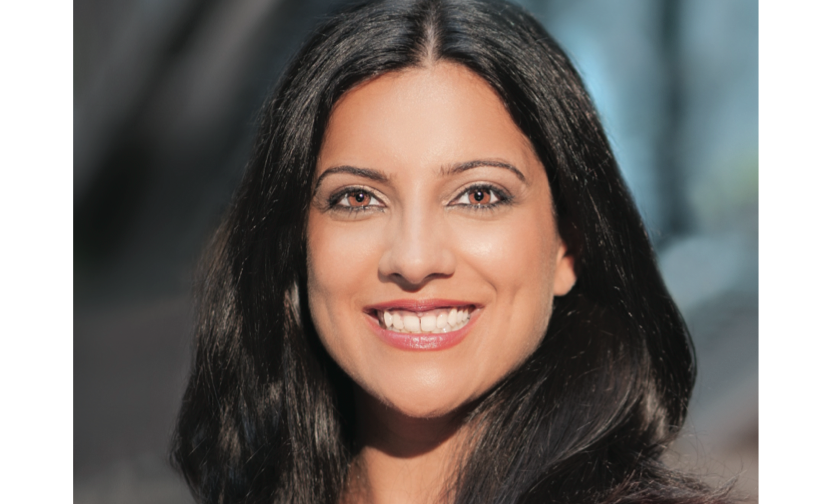In Reshma Saujani’s 2011 Ted Talk, she discussed the importance of encouraging more American youth to pursue STEM (Science, Technology, Engineering and Mathematics) careers in order to create jobs and re-ignite our economy. Not only are twice as many degrees being earned in business and social science compared to STEM, she also pointed to a startling gender gap, especially in technology fields. While 58 percent of women earn bachelor degrees, only 25 percent of them are in STEM fields, and only 12 percent of computer science graduates are women, down from 37 percent in 1985.
Research has shown that in a poll of fourth graders, two-thirds of both boys and girls claim to like math and science. However, by the time girls graduate high school, only 0.3 percent choose computer science as their college major.
“I think there are subtle things we do to girls that tell them that these fields are not for them,” says Saujani, who provided the voiceover for this summer’s “Inspire Her Mind” campaign, a cultural dialogue ignited by Verizon and MAKERS, a digital platform showcasing stories of trailblazing women from all walks of life. The commercial shows how parents discouraging their daughters from getting their dresses and hands dirty, telling them to be careful around electric tools (while passing them off to their brothers), can really have an effect on girls’ perceptions of what they think they can be.
“It’s not intentional,” Saujani continues. “I was home in Chicago with my two nieces and nephew, and my father called my nephew to come help him fix something, instead of calling my nieces. After he watched the ‘Inspire Her Mind’ ad, he realized he may also be unconsciously not pushing girls toward creating and building things.”
To combat this gender disparity, Saujani created Girls Who Code, a nonprofit that exposes girls to engineering and technology at a young age, with hopes that cultivating these interests early will encourage them to become the next generation of entrepreneurs and innovators. In 2012, Girls Who Code kicked off an eight-week summer program in New York City that taught programming to 20 girls, many from underserved communities. Since then, those girls have been inspired to spread their knowledge and enthusiasm by creating Girls Who Code clubs at their high schools across the country. A year later, the nonprofit had grown to eight programs in five different cities, and they are only getting bigger. The U.S. Department of Labor projects that, by 2020, there will be 1.4 million computer specialist job openings; Girls Who Code aims to provide computer science education and exposure to 1 million young women in the next six years.
“If girls have this skillset, they’re going to build tools and products that are going to make the world a better place,” says Saujani, pointing to her first set of students who built apps that tackled issues like bullying, obesity, cancer and world hunger.
“These girls want to create a product that will make communities better, and having the technological skills and being able to code will be important to solving these problems.”
One former participant of the Twitter Girls Who Code summer immersion program, Ming Horn, started a nonprofit called Khode Up! to teach web development and graphic design to teenage orphans in Cambodia. Though the high school student was inspired after meeting Facebook Chief Operating Officer Sheryl Sandberg through the program, Saujani believes that “the kids’ biggest role models are each other.”
Though Saujani grew up in a family of engineers in Illinois, she says she was terrified of studying math and science, a regret that gnawed at her all through adulthood. She eventually studied political science at the University of Illinois at Urbana-Champaign, earned a master’s of public policy at Harvard and attended Yale Law School. She had discovered a passion for public service and political activism early in life. Her first march was as a 13-year-old youth activist fighting against racial and social injustice, and later, after 9/11, she worked to educate Muslim immigrants in Queens about their legal rights post-Patriot Act.
“It reminded me of what my parents, who came here as refugees from Uganda, went through,” says Saujani. “How your rights can literally be taken away at a moment’s notice if you don’t participate in the political process.
“That showed me how much the South Asian community lacked a voice in politics,” she continues. “In many ways, politics wasn’t encouraged in my family. In Asian families, you’re not supposed to put yourself out there like that. But I’ve always loved it. I’ve always had the desire to serve.”
Eventually, she worked as the deputy public advocate at the Office of the New York City Public Advocate, and in 2010, she was the first South Asian woman in the country to run for U.S. Congress. While she suffered two political defeats – she also ran for New York City Public Advocate in 2013, coming in third in the primary – she’s determined to change public perceptions of what’s possible for a South Asian American woman.
During her time campaigning, Saujani visited many schools and was impressed by their technology. She was also looking for a way to support the economic transformation of New York City, and it was then that the seeds of Girls Who Code were planted.
“After [the Facebook film] The Social Network, more boys think technology is cool, but I don’t think it has had the same effect for girls yet,” says Saujani, who published her first book, Women Who Don’t Wait in Line: Break the Mold, Lead the Way, in 2013. “And that’s what we’re working on. No matter what you want to be, whether it’s a doctor, dancer or artist, technology is a part of who we are.”
Find out more about Girls Who Code at girlswhocode.com.
This story was originally published in our Fall 2014 issue. Get your copy here.
[wp_ad_camp_2]







